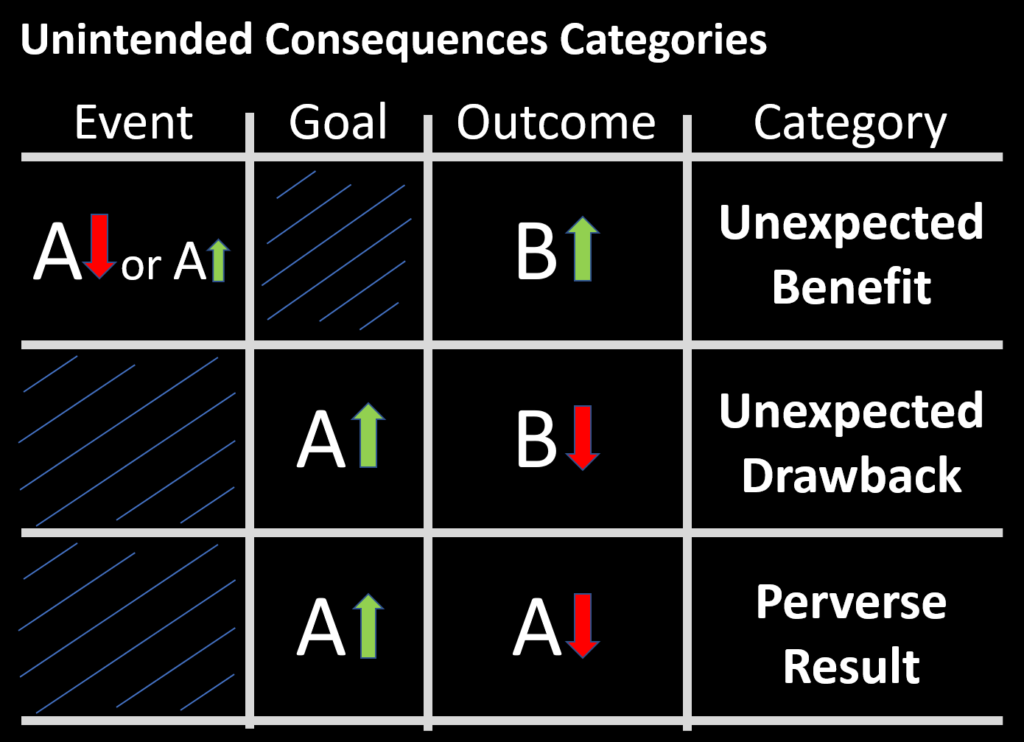When I started this project to learn about unintended consequences, my first post to go viral (top page of Hacker News) was about the Cobra Effect. The Cobra Effect is another name for “perverse results,” or how when we want more (or less) of something, we sometimes instead create the conditions that produce the opposite of our intended outcomes. In that post I took three well-known examples of the cobra effect and invented antidotes for them.
Those well-known Cobra Effect examples all involved animals (cobras, rats, and pigs) and so my antidotes were based around the animals’ reproductive cycles. I made the claim that those animal examples had the solution built into the problem. Readers loved it (creative look at an old topic!) and readers hated it (you can’t stop the Cobra Effect!).
Since the Cobra Effect is a type of unintended consequence that keeps coming up, I decided to write part two. Continue reading “The Cobra Effect (Part 2)”
